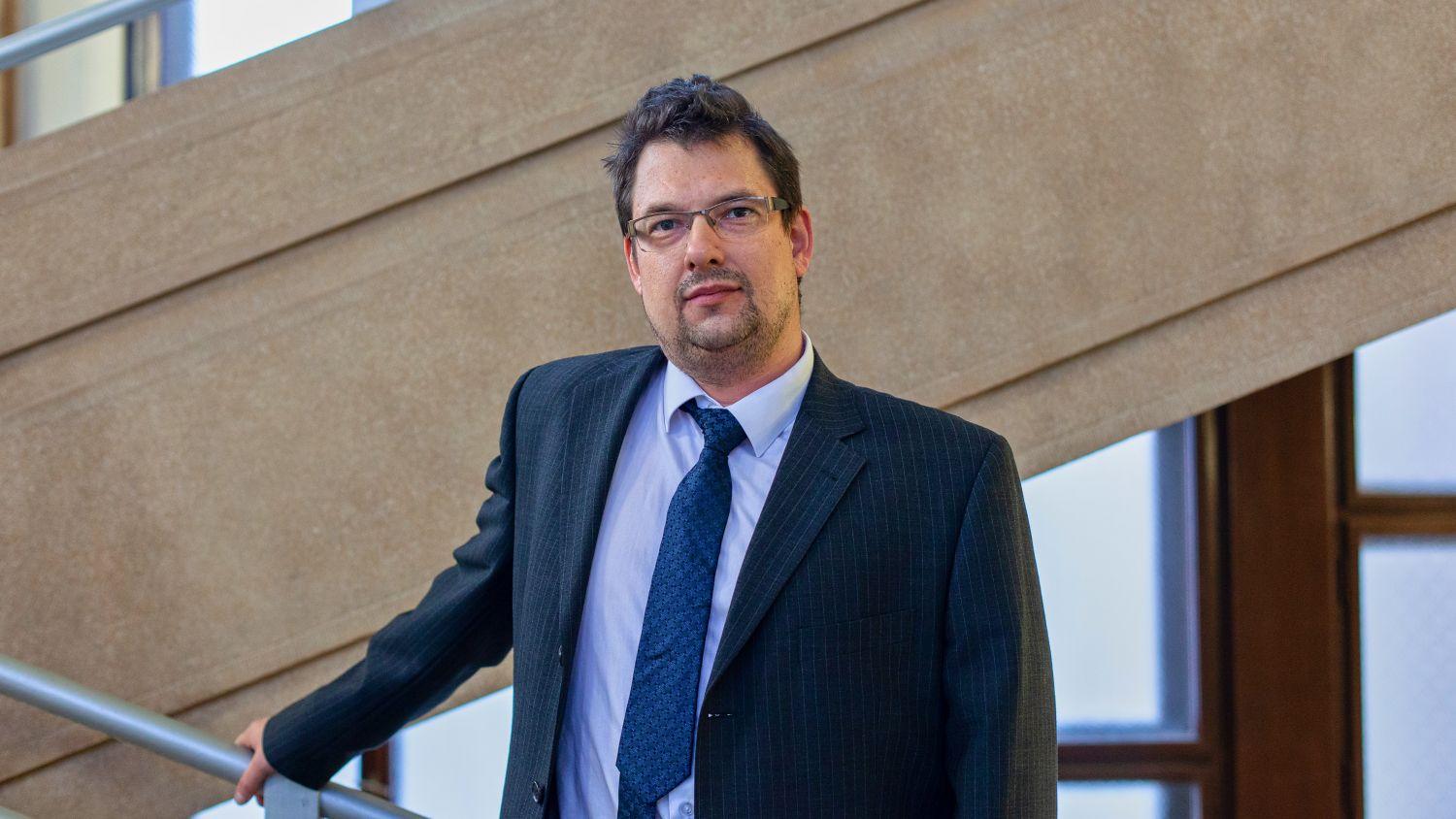
Material genetics will be pursued by the AMULET project, which succeeded in the Excellent Research Call
Multiscale materials are assembled from different types of nanomaterials, which themselves have unusual properties. By combining and integrating them into higher-order hierarchies, smart matter with unique functionalities and surprising applications in many different fields can be obtained. A consortium of eight partners from academia and research, led by the J. Heyrovský Institute of Physical Chemistry of the Czech Academy of Sciences, has received financial support from the Programme Johannes Amos Comenius of the Ministry of Education, Youth and Sports. Specifically, it was the Excellent Research Call aimed at supporting research with the potential for excellent results applicable in practice.
The development of advanced materials with the required parameters and their integration into functional structures while maintaining their maximum utility value is the common denominator of modern materials research. Current directions in materials science draw inspiration from nature, where beyond naturally occurring elements and compounds, nature enables so-called material genetics, i.e. the targeted folding and "cross-breeding" of material components in 3D space.
Scientists are combining zero-dimensional (quantum dots), one-dimensional (e.g. nanotubes), and two-dimensional (e.g. graphene) materials in the lab to give them new and unusual properties. The challenge is to develop advanced, so-called multiscale materials with a wide range of applications, e.g. in electrical engineering, medicine, or environmental technologies.
"Research in the field of nanomaterials is very broad nowadays. The AMULET project will allow us to connect a number of directions in this field, which may bring unexpected discoveries," said project coordinator Martin Kalbáč from the J. Heyrovsky Institute of Physical Chemistry of the Czech Academy of Sciences (CAS).
In collaboration with a Nobel Prize winner in Physics
Eight partners cooperate in the AMULET (Advanced MUltiscaLe materials for key Enabling Technologies) project. The coordinator is the J. Heyrovsky Institute of Physical Chemistry of the CAS; and other members of the consortium involve the Institute of Organic Chemistry and Biochemistry of the CAS, the Faculty of Science of Jan Evangelista Purkyně University in Ústí nad Labem, the Institute of Photonics and Electronics of the CAS, the Institute of Physics of the CAS, the Faculty of Mathematics and Physics and the Faculty of Science of Charles University, the Nuclear Physics Institute of the CAS and the University of Chemistry and Technology in Prague.
Linking the above institutions aims to promote the widest possible use of the anticipated newly developed unique materials. Experts will investigate how multiscale materials interact with the biological environment, whether they can be used for electrochemical or optical sensors, in electro-photochemical catalysis for the removal of pollutants from air and water, and last but not least, they will test new nano/micro-devices that can be used for energy conversion, production, and storage.
"Our faculty will be involved mainly in the preparation and characterization of nanostructured materials for gas capture, e.g. CO2, and materials with antimicrobial surfaces. It will also participate in the characterization of materials prepared by other consortium partners using techniques available at the faculty," said Zdeňka Kolská from the Faculty of Science of Jan Evangelista Purkyně University.
Professor Konstantin Novoselov, who won the Nobel Prize in Physics in 2010 for his discovery of graphene, among others, will oversee the progress and direction of the research on the project's International Scientific Council.
"We are very pleased that Professor Novoselov has agreed to serve on the International Scientific Council. He is undoubtedly one of the most prominent personalities and visionaries in the field of 2D materials research, as we have been fortunate to discover in the course of our many collaborative investigations over the past years," said Matěj Velický from the Heyrovský Institute.
Beyond excellent research, the AMULET project aims to cooperate with major foreign institutions to train the next generation of top scientists. "We will focus, for example, on the implementation of double-supervised doctorates, the expansion of inter-university agreements within the framework of the pan-Japanese consortium "Science of 2.5 D Materials" or the accreditation of progressive study programmes in English," said Jana Kalbáčová Vejpravová from the Faculty of Mathematics and Physics of Charles University.
The Ministry of Education and Science supports cutting-edge research
The AMULET project succeeded in the competition of 66 projects submitted to the Excellent Research call in the Programme Johannes Amos Comenius. This call is aimed at supporting research with the potential for excellent results applicable in practice. In total, 26 projects were supported for a total value of CZK 12.2 billion. The money is earmarked for excellent research teams, which will help Czech scientific institutions deepen their relations with foreign partners and strengthen the Czech Republic's competitiveness in the long run.
The multiannual Operational Programme Johannes Amos Comenius is administered by the Ministry of Education, Youth and Sports. In the programming period 2021-2027, the Programme draws money from the European Structural and Investment Funds (ESIF). In total, it amounts to CZK 90 billion, of which CZK 43 billion is intended to support research and development, CZK 19 billion to support universities, and CZK 28 billion for regional education.
More information
Project coordinator
doc. RNDr. Ing. Martin Kalbáč, Ph.D.
+420 777 921 060
Prof. Ing. Zdeněk Sofer, Ph.D.
zdenek.sofer@vscht.cz
Other institutions
prof. Ing. Jiří Homola, CSc., DSc.
Mgr. Petr Cígler, PhD
prof. RNDr. Jana Kalbáčová Vejpravová, Ph.D.
Faculty of Mathematics and Physics of Charles University
jana@mag.mff.cuni.cz
prof. RNDr. Anna Macková, Ph.D.
Nuclear Physics Institute of the CAS
mackova@ujf.cas.cz
Ing. Jiří Červenka, Ph.D.
prof. Ing. Zdeňka Kolská, Ph.D.
About UCT Prague
The University of Chemistry and Technology Prague (UCT Prague) is a natural center of study and cutting-edge research. One of the largest educational and research institutions in Central Europe, it specializes in technical chemistry, chemical and biochemical technologies, material and chemical engineering, food chemistry, environmental studies, and business. Remarkably, of the more than 4,000 students at the school, 700 are enrolled in PhD programs on average. Some of the study programs on offer at UCT are unique in the Czech Republic and are key to the future of the entire country. The school collaborates with more than 100 academic institutions, namely within Europe but also in the USA, Canada, Japan, Vietnam, and elsewhere.







